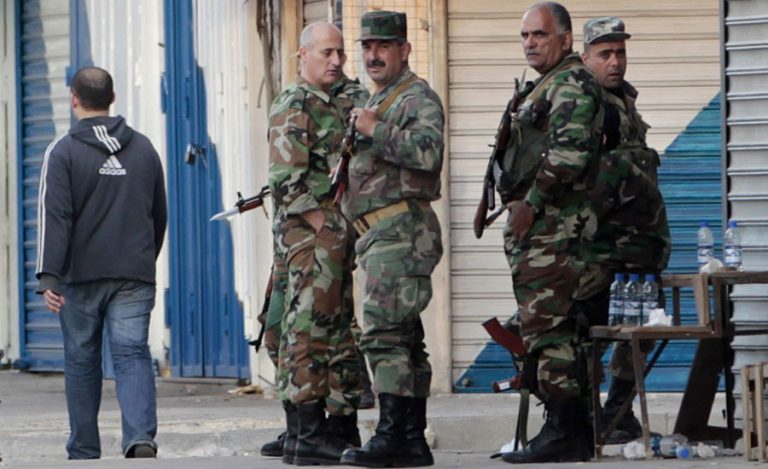The series of bodies arriving from the fronts is no longer the only daily event in the life of the people of Lattakia city, as a number of serious crimes have become other regular occurrences adding to the pain of this city.
For a long time, this city has forgotten the meaning of a reassured slumber. In the morning, there will be news of murder, looting, kidnapping and theft — as though this city can bear one pain on top of another.
Life grinds up what remains of the people’s ability to endure: Higher prices are announced every morning, which stick and expand, and the insanity grows in the price of gas, fuel, medicine, vegetables, meat and everything else, in a city where there is no electricity most of the time, and whose young men hide from the eyes of the legions of patrols searching for them to send them to the fronts of death.
The state and its agencies prepare all their strength and violence when they see a young man who has avoided the conflagration of the war. But these agencies fall humiliated on their knees in servile humiliation when another citizen from some gang confiscates something. The gangs kidnap, kill and they steal openly. And when someone turns to the state agencies when their family member has been kidnapped or a relative killed, the agencies shake their heads, stall, and evade, and then register a case against an unknown person.
The tragedy of the matter is that everyone knows who is doing the kidnapping and killing, and everyone knows that no one is safe from these gangs. Yet no one dares to do anything, whispering only among themselves, then continuing with their long wait, hoping a miracle might happen and the rest of them might be saved.
A few days ago, a retired major, Bassam Jadid, was assassinated. The news of his death was circulated on social media sites as if it had happened in a distant country, and that those who did it might have come from another planet, even though he was kidnapped publicly in daylight near his home.
A number of days ago, an incident erupted between two young men, one of them from the Assad family and the other from the Raie family. The problem grew until the matter resembled a war, and the state was unable to intervene in the face of third-generation shabeeha of the Assad family. Bashar Badeea al-Assad, Tareq Badeea al-Assad and Bassil Ghaith al-Assad believed, like all members of this gang of a family, that they were above the law, above the state, and above the people.
There is no room here to list the dozens — perhaps hundreds — of incidents that have occurred in Lattakia. However the kidnapping and killing of a 13-year-old child from the Saloukha family is still fresh in the city’s memory. Before that, the young man Jaafar Mahmoud Mohamad was shot in Al-Kanadi street in the heart of the city center. He died immediately, and his relative was wounded and is still in critical condition at the hospital. Not too long ago, a group stabbed to death a coffee vendor, “Abou Ali,” in Port Said Street, and a young girl was kidnapped in the main Sheikh Daher square in broad daylight, just meters away from one of the biggest police security centers in the city. Three university students were also kidnapped at the gates of the university, and so on, and so on, and so on…
The irony that may stun you is that everyone who has been subjected to this oppression and crime, speaks from the first moment about the greatness of (the late) Hafez al-Assad and his son Bashar, praising him, and declaring loyalty to him before then talking about the scandals they have been subjected to, as if the shabeeha gangs, the Assad family gangs, Rifaat al-Assad, and even the new Assad family teenagers appeared in the absence of Hafez and Bashar.
Walk in the streets of the sad city and you will see tired, broken faces, with clouded eyes, faces searching for safety in the city of death, oppression and shabeeha.
This article was translated and edited by The Syrian Observer. Responsibility for the information and views set out in this article lies entirely with the author.


